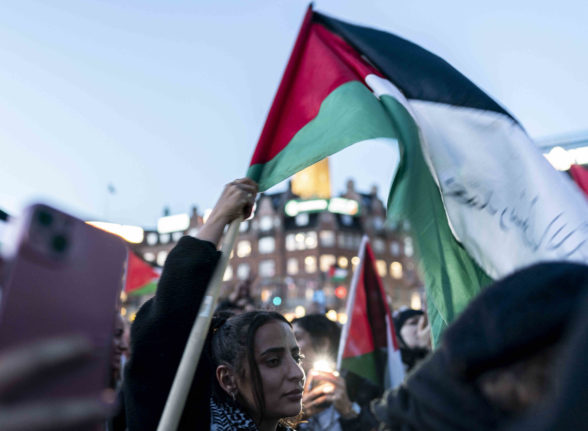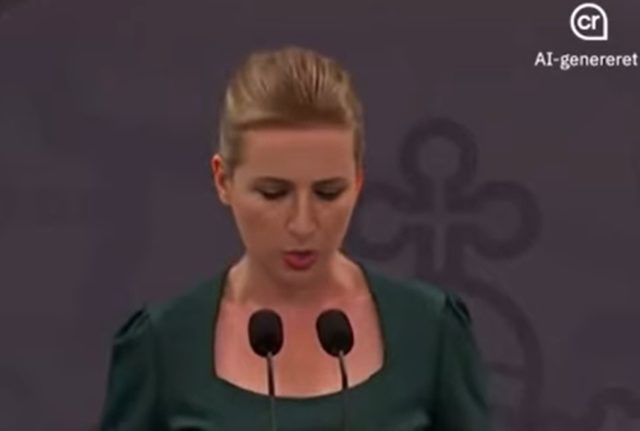The rally, one of several planned across Denmark, took place under tight police surveillance.The demonstrations were taking place on the eighth day of a conflict that has left thousands dead and seen 150 Israelis taken hostage.
Marchers converged at Norrebro in western Copenhagen, many carrying flags and banners with slogans such as “A genocide is unfurling” and “Stop killing innocent Palestinian children”.
Other banners read “Long live Palestine” or denounced the United States and Israeli Prime Minister Benjamin Netanyahu.
One marcher, who gave his name as Abdelaziz, said it would be “naive” to think such actions could stop Israel. “We are doing this to appeal to other countries and call on them to contribute to respect for international human rights and not lie, not hide what is happening,” he added.
Another participant who gave her name as Lena, 17, said: “People must speak up more about what is happening in Gaza at the moment as millions of civilians are being killed and it’s not acceptable.”
Queen Margrethe and Prime Minister Mette Frederiksen attended a memorial service at the Copenhagen Synagogue Saturday for the victims of last weekend’s
attack by Hamas on Israel.
In a poll by Denmark’s Voxmeter institute published Friday by the Ritzau news agency 20 percent or respondents said they thought believe Palestinians had the right to use attacks like the one carried out last weekend to defend their cause. But 41 percent of respondents disagreed.
Following the attack by Hamas militants, during which they killed more than 1,300 people, Israel has imposed a siege on the Gaza Strip.
Health officials in Gaza say more than 2,200 people have been killed. As on the Israeli side, most of them were civilians.



 Please whitelist us to continue reading.
Please whitelist us to continue reading.
Member comments